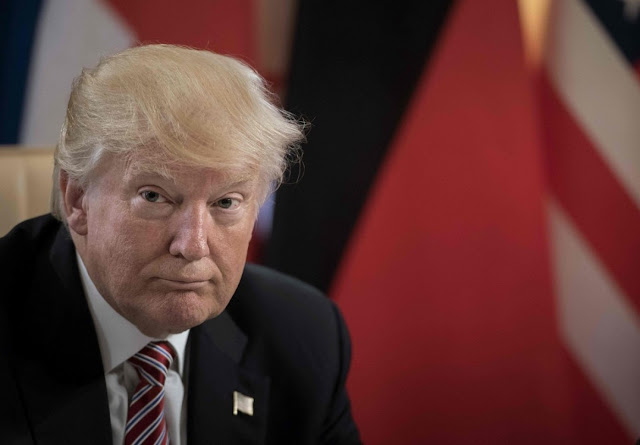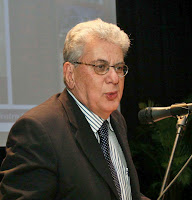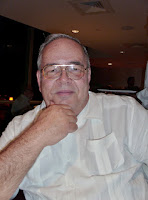POLITICA | Las noticias falsas provienen de la Casa Blanca
The fake news is coming from inside the White House
By Philip Bump  |
| Donald Trump attends a working lunch at the G-7 summit on May 26, 2017, in Taormina, Sicily. (AFP/Getty Images) |
To believe Donald Trump, you must believe two largely contradictory things.
You must believe that there are a slew of leakers in the executive branch who are providing damning details to the press illegally, and who must be rooted out and punished. (See tweets here, here, here, here and here.)
You must also believe that the press makes up imaginary leakers simply to slowly and incrementally report false stories that are tangentially embarrassing to the president. The most recent examples of Trump making that case came on Sunday (“Whenever you see the words ‘sources say’ in the fake news media, and they don’t mention names,” he said on Twitter, “it is very possible that those sources don’t exist but are made up by fake news writers. #FakeNews is the enemy!”), but he’s been railing against this idea that some media sources are not real since the campaign. (See tweets here and here.)
The result is that we end up with a president who at 8:33 a.m. says that it’s his opinion “that many of the leaks coming out of the White House are fabricated lies made up by the #FakeNews media,” and then at 10:43 a.m. says that the prime minister of the United Kingdom was mad about information that was leaked.
Trump, unlike most politicians and, frankly, most people, will nonchalantly argue two logically inconsistent points at the same time. On the campaign trail, he mastered the art of vague assurance that he stood for whatever his audience stood for, and, in office, that skill doesn’t seem to have faded. If it is best that people think a leak was made up by the media — like The Post’s report that Jared Kushner asked Russia to help set up a secure communication system with the Trump team — then Trump will argue that the media made it up. (We didn’t.) If the leak is incidental to him or if he’d like to put the heat on someone else — if, say, someone in law enforcement leaks photos of a terror attack in the U.K. — he’ll argue that the leakers need to be caught.
As Trump knows, though, there are many reasons for someone to provide information without wanting to be identified. Trump himself used to call news outlets pretending to be his own publicist so that he could share details without revealing the source. And while Trump administration officials often speak on the record to the media, they nearly as often speak only on background as so-called “senior administration officials,” faceless voices praising Trump without being able to be held accountable for what they said. It happens so often that the abbreviation “SAO” is understood immediately by the press.
Here, for example, are a number of things that the White House has provided to the White House press corps using sources who refused to be named. (All quotes are from pool reports filed by members of the media.)
Jan. 28: About the immigration ban.
The official said that Trump advisers had been in contact for many weeks with key State Department and Department of Homeland Security officials about Friday’s executive order. “Everyone who needed to know was informed,” the official said.
When the administration was forced to craft a second attempt at the ban a month after this, press secretary Sean Spicer told press that the first attempt was flawed by not having enough people in place to vet it.
The official said green-card holders from one of the seven affected countries who are currently outside the United States will need a case by case waiver to return to the United States, according to the official. Those green-card holders in the United States will have to meet with a consular officer before leaving the country, the official said.
Jan. 29: Immigration ban.
The SAO said there was no “advance notice” of the order going out for clear reasons that he did not explicitly outline. “I think everybody here can use their imagination to imagine 25 reasons why that wouldn’t make sense from a security standpoint,” SAO said.The SAO said that “the guidance from the beginning” has been that legal permanent residents (LPRs) were exempt from the immigration EO, although there was some discussion about that in the room.
Notice that the comment about LPRs contradicts the statement from the previous day about green-card holders.
SAO praised the implementation of the order as having been done “seamlessly” and with “extraordinary professionalism.”
A common thread: Praise for whatever the administration is doing.
Feb. 14: On peace in the Middle East.
The official said a possible meeting between the Israelis and Palestinians would be part of the discussions tomorrow. “He’s hopeful to bring the two sides together to discuss peace,” the official said of the president. How quickly would he like to get a Middle East peace process going? “I do think it’s a very high priority for the administration,” the official said, who would not be pinned down on timeline.
Feb. 24: A response to reports that the White House had tried to get intelligence officials to deny reports about FBI investigations.
[FBI assistant director] Andrew McCabe said ‘I want you to know story in NYT (in FBI investigating contacts between Trump campaign people and Russian intel) is BS.’ (Some question whether he said bullshit or simply BS although officials best recollection is ‘bullsh-t.’) Preibus asked ‘what can we do about this?’ McCabe demurs and says he’ll get back to Preibus. Preibus’ can concern is he’s ‘getting crushed’ on the story. ‘What an I supposed to do?’
An unnamed official relaying a conversation held within the White House is the sort of thing that Trump in other contexts has harshly criticized.
Mar. 10: Conversation with German Chancellor Angela Merkel.
President Trump has been “heartened” by what he has heard from Berlin about devoting more resources to the annual NATO military budget. POTUS intends to talk with Merkel about her government crafting a “concrete plan,” the senior official said. POTUS is “very interested” to get Merkel’s insights about working with Russian President Vladimir Putin, the senior official said.
As is an unnamed person offering insight into Trump’s conversations with foreign leaders.
Apr. 12: Trump had a good week.
The main theme was that this has been a successful week or so for Potus on the international stage, including the retaliation against Syria, the summit with President Xi and today’s U.N. vote. “It’s difficult to portray this as anything but a really great week” for the United States.
May 23; From the early part of Trump’s first foreign trip.
So I think this trip was a big success because it was unexpected. It went in the heart of one of the, I always say that the president is always at his best when he’s doing big things that are unexpected. … He was able to really go into Saudi Arabia, the custodian of the holy mosques, and then Donald Trump united the entire Muslim world in a way that it really hasn’t been in many years. So it really was very historic in that regard.
The official then talked about peace in the Middle East again.
You can’t just walk in on Day One and sign a deal that no one has gotten done in 35 years but we thought it was very essential to look at the work over the last 100-odd days and this trip is to do a lot of listening, build very strong relationships with all the different people, not just the parties involves, but all the people in the neighborhood.
May 25: The trip, continued.
This official continued, “What Trump’s doing really is increasing NATO’s ability to deter any kind of aggression on its borders, including from Russia.”
May 27: The end of the trip.
I feel more than comfortable to say that the President had built an extraordinary rapport with the other leaders. He developed great friendships. It was extremely productive. … This trip has left no one with any doubt about who America’s friends are and who America’s allies are, and our resolution in determining the course of our future based upon upholding those alliances and friendships. But ultimately, we also formed new partnerships and new friendships, and have created a growing consensus around the world about the need to combat the shared threat of terrorism.






Comentarios
Publicar un comentario